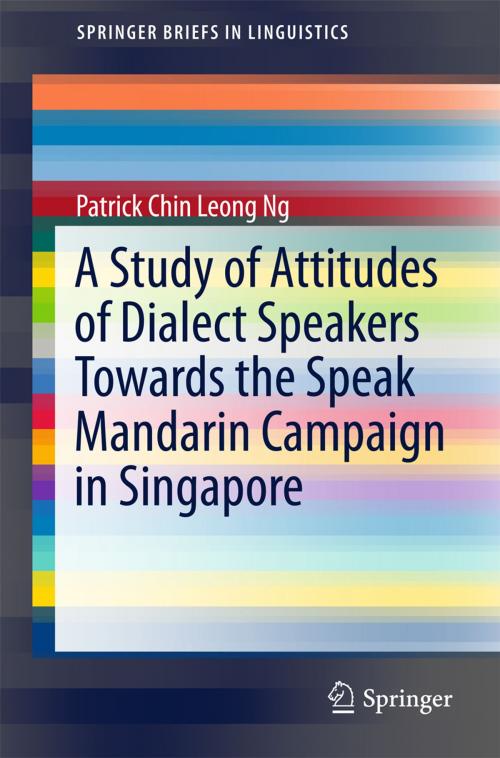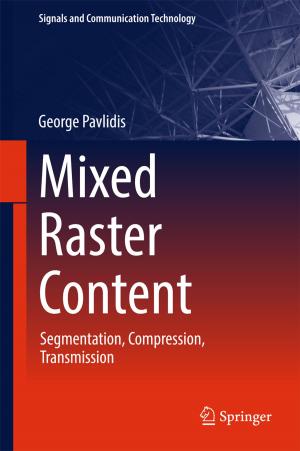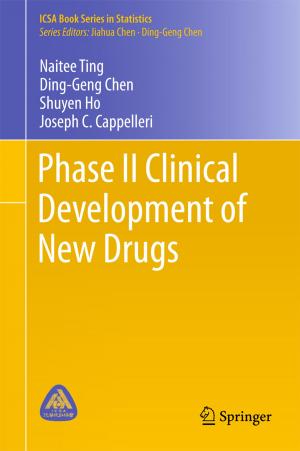A Study of Attitudes of Dialect Speakers Towards the Speak Mandarin Campaign in Singapore
Nonfiction, Reference & Language, Foreign Languages, Chinese, Language Arts, Linguistics| Author: | Patrick Chin Leong Ng | ISBN: | 9789811034435 |
| Publisher: | Springer Singapore | Publication: | January 19, 2017 |
| Imprint: | Springer | Language: | English |
| Author: | Patrick Chin Leong Ng |
| ISBN: | 9789811034435 |
| Publisher: | Springer Singapore |
| Publication: | January 19, 2017 |
| Imprint: | Springer |
| Language: | English |
This book makes an original contribution to the fields of sociolinguistics, language planning policy and Chinese language studies. It examines the effectiveness of the Singapore’s Speak Mandarin Campaign in changing the language use of dialect speakers towards Mandarin.Singapore may be only “a small red dot” and barely visible on the world’s map. However, its complex and dynamic linguistic diversity and its quadrilingual educational system make it a unique and fascinating research site for examining deliberate language planning on the part of governmental authorities. 2017 marks the 38th anniversary of the Speak Mandarin Campaign, a focused language-planning policy aimed at changing the deeply entrenched sociolinguistic habits of Chinese Singaporeans who are used to speaking Chinese dialects. This book provides a revealing update on dialect speakers’ attitudes towards the campaign by including discussions and other related issues such as the recent call for the revitalisation of Chinese dialects by younger dialect speakers, Chinese students’ attitude towards learning Mandarin in schools, the encroachment of English in the home environment, the spread and dominance of English in the local linguistic landscape, and the challenges of maintaining Mandarin as a language of use and preference.
This book makes an original contribution to the fields of sociolinguistics, language planning policy and Chinese language studies. It examines the effectiveness of the Singapore’s Speak Mandarin Campaign in changing the language use of dialect speakers towards Mandarin.Singapore may be only “a small red dot” and barely visible on the world’s map. However, its complex and dynamic linguistic diversity and its quadrilingual educational system make it a unique and fascinating research site for examining deliberate language planning on the part of governmental authorities. 2017 marks the 38th anniversary of the Speak Mandarin Campaign, a focused language-planning policy aimed at changing the deeply entrenched sociolinguistic habits of Chinese Singaporeans who are used to speaking Chinese dialects. This book provides a revealing update on dialect speakers’ attitudes towards the campaign by including discussions and other related issues such as the recent call for the revitalisation of Chinese dialects by younger dialect speakers, Chinese students’ attitude towards learning Mandarin in schools, the encroachment of English in the home environment, the spread and dominance of English in the local linguistic landscape, and the challenges of maintaining Mandarin as a language of use and preference.















